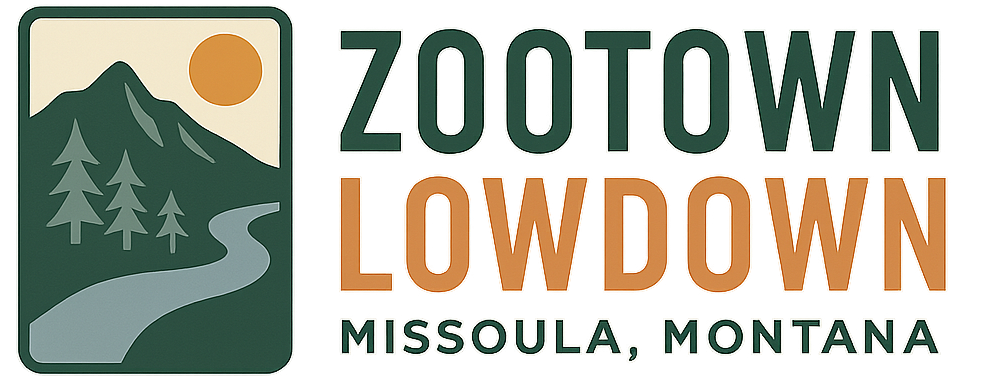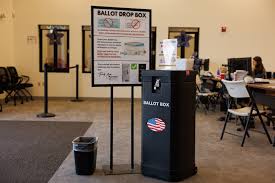Missoula Election Results: Mayor Davis Wins, Council Shifts, Levy Fails
Zootown Lowdown
Archives
Missoula Election Results: Mayor Davis Wins, Council Shifts, Levy Fails
SIGN UP FOR OUR NEWSLETTER
Missoula Election Outcomes Spark Hope and Debate in Community |
Breaking Down the Missoula Election Results and What They Mean for Local Governance |
In the recent Missoula election, residents witnessed a blend of continuity and change as key positions were decided.
Mayor Andrea Davis secured a decisive victory, claiming her first complete four-year term with a strong showing against challenger Shawn Knopp.
This outcome reflects a community eager for steady leadership amid ongoing challenges like housing affordability and infrastructure needs.
Davis, drawing on her background in housing advocacy, emphasized progress in areas such as new affordable developments and enhanced public services.
Her win, by a margin of nearly 40 percentage points, signals voter confidence in her approach to balancing budgets without drastic tax hikes.
Meanwhile, the Missoula City Council races delivered mixed fortunes for incumbents, reshaping the body's dynamics.
In Ward 1, newcomer Betsy Craske emerged victorious over Lucas Moody, promising to foster unity in a divided political landscape.
Craske's background in education positions her to bridge gaps and focus on community-building initiatives.
Ward 2 saw Justin Ponton take the lead against Rebecca Dawson, bringing his expertise in real estate to tackle housing shortages and infrastructure improvements.
The results highlight a push toward pragmatic solutions in Missoula's growing urban environment.
Incumbent Daniel Carlino faced defeat in Ward 3 to Jennifer Savage, who leveraged her prior council experience to advocate for continued progress on zoning reforms and school communications.
This shift underscores voter preference for collaborative governance over more ideological stances.
In Ward 4, Mike Nugent retained his seat against David Quattrocchi, stressing the importance of cross-sector partnerships to address local issues.
Nugent's victory reinforces a council approach that values compromise and detailed policy work.
Stacie Anderson ran unopposed in Ward 5, securing another term to continue her long-standing contributions to nonprofit-driven community enhancements.
Ward 6 featured dual races: Sean Patrick McCoy ousted conservative incumbent Sandra Vasecka in the two-year seat, focusing on reducing bureaucratic hurdles for residents.
In the four-year contest, Kristen Jordan held off Chris Foster, becoming the sole winner among candidates backed by local progressive groups.
Jordan's platform, centered on social safety nets and equitable budgeting, resonated despite broader setbacks for similar endorsements.
The Missoula election also saw the rejection of a proposed countywide infrastructure levy, which aimed to fund roads, bridges, and trails with an annual $1.8 million boost.
Voters turned it down, citing concerns over additional taxes in an already strained economic climate.
County officials expressed disappointment but vowed to explore alternative funding for critical repairs, highlighting the ongoing battle to maintain Missoula's vital public assets.
Progressive voices, including those from democratic socialist circles, celebrated Jordan's win while reflecting on losses elsewhere.
They pointed to growing interest in alternatives to traditional systems, inspired by national figures and local frustrations with rising costs.
Critics of these platforms argued for more teamwork on council, warning against divisive rhetoric that could hinder progress.
Overall voter turnout hovered around 42 percent, a slight dip from previous cycles, yet it demonstrated engaged citizenship in Missoula's nonpartisan races.
The unopposed municipal judges—Jennifer Streano, Eli Parker, and Jacob Coolidge—will serve another term, ensuring stability in the judicial branch.
As the new council prepares to convene, with some members sworn in soon, the focus shifts to implementing policies that address affordability, homelessness, and sustainable growth.
Davis highlighted her commitment to fiscal responsibility and responsive government, aiming to build on recent achievements like land use planning and emergency service upgrades.
This Missoula election cycle not only elected leaders but also ignited conversations about the city's future direction.
Residents now look forward to collaborative efforts that could transform challenges into opportunities for a thriving community.
With results set to be finalized soon, the outcomes promise a blend of aspiration and practicality in local governance.
What were the key races in the Missoula election?
The Missoula election featured the mayoral race, several city council wards, and a county infrastructure levy.
How did progressive candidates fare in the Missoula election?
Only one DSA-endorsed candidate won, indicating mixed support for their shared platform on housing and budgeting.
Why did the infrastructure levy fail in the Missoula election? Concerns over tax increases led voters to reject the proposal, prompting officials to seek other funding solutions. |

